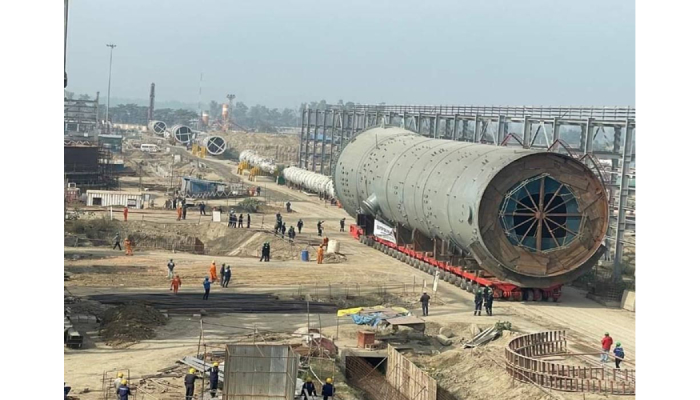How Small Businesses Can Scale With The Help Of 3rd Party Logistics Services?
In today’s highly competitive business landscape, small businesses face unique challenges in scaling their operations. Limited resources, fluctuating demand, and logistical inefficiencies can act as significant roadblocks to growth. However, the advent of 3rd Party Logistics Services (3PL) has revolutionized how businesses manage their supply chain and logistics, offering small enterprises the opportunity to expand their reach, improve efficiency, and boost profitability.
This article explores how small businesses can leverage 3rd Party Logistics Services to overcome growth barriers and achieve scalability, focusing on the key benefits, services, and strategies to maximize their potential.
Understanding 3rd Party Logistics Services
3rd Party Logistics Service refers to outsourcing logistics and supply chain management functions to specialized service providers. These providers handle critical operations like inventory management, warehousing, transportation, order fulfillment, and reverse logistics. By partnering with a 3PL provider, small businesses can delegate these time-consuming tasks, allowing them to focus on core business activities such as product development and customer acquisition.
The flexibility and scalability offered by 3PL providers make them an attractive solution for businesses looking to streamline operations and manage growth effectively.

Key Benefits Of 3rd Party Logistics Services For Small Businesses
- Cost Savings
One of the most significant advantages of partnering with a 3PL provider is cost efficiency. Setting up an in-house logistics department can be expensive due to the need for warehouses, technology, and skilled staff. A 3rd Party Logistics Service eliminates these upfront investments by providing access to shared resources. - Access to Expertise and Technology
3PL providers bring industry expertise and advanced logistics technology to the table. From real-time tracking systems to demand forecasting tools, these technologies help small businesses improve supply chain visibility and make data-driven decisions. - Scalability and Flexibility
As businesses grow, their logistical needs evolve. A 3rd Party Logistics Service can easily scale operations to meet increased demand without requiring significant capital investment. Whether a business needs more warehouse space during peak seasons or faster shipping options to meet customer expectations, a 3PL provider offers the flexibility to adapt quickly. - Improved Customer Experience
Fast and accurate order fulfillment is critical for customer satisfaction. 3PL providers specialize in streamlining delivery processes, ensuring orders reach customers promptly and accurately. - Focus on Core Competencies
Logistics can be complex and time-consuming, diverting valuable resources from a business’s primary goals. By outsourcing logistics to a 3rd Party Logistics Service, small businesses can concentrate on areas like marketing, innovation, and customer relationships, driving growth more effectively.
Services Offered By 3rd Party Logistics Providers
To fully understand the potential of 3PL services, it’s essential to explore the range of offerings that these providers deliver:
- Warehousing and Inventory Management
3PL providers offer state-of-the-art warehousing facilities that include inventory management systems for efficient stock control. These systems reduce the risk of overstocking or understocking, ensuring optimal inventory levels at all times. - Transportation and Freight Management
Managing transportation logistics can be daunting for small businesses. 3PL providers coordinate shipping routes, carrier selection, and freight consolidation to ensure timely and cost-effective delivery. - Order Fulfillment
From picking and packing to shipping and tracking, 3PL providers handle the entire order fulfillment process. Their streamlined systems ensure accuracy and speed, enhancing the customer experience. - Reverse Logistics
Returns and exchanges are an inevitable part of e-commerce and retail. 3PL providers manage reverse logistics efficiently, ensuring customer satisfaction and minimizing losses. - Cross-Docking Services
For businesses looking to minimize storage costs, cross-docking allows products to be directly transferred from inbound to outbound transportation, reducing the need for warehousing.
Strategies For Small Businesses To Maximize 3pl Partnerships
- Select the Right 3PL Provider
Not all 3PL providers are the same. Small businesses must assess potential partners based on their industry experience, technology capabilities, and scalability. Choosing a provider that aligns with the company’s goals is critical for long-term success. - Leverage Technology Integration
Many 3PL providers offer software integration with existing business systems, such as Enterprise Resource Planning (ERP) or e-commerce platforms. This integration ensures seamless communication and improves supply chain visibility. - Start Small and Scale Gradually
Small businesses can begin their 3PL journey by outsourcing specific functions, such as transportation or warehousing, and gradually expand the scope as their confidence in the provider grows. - Monitor Performance Metrics
Establishing clear Key Performance Indicators (KPIs) for the 3PL partnership is essential. Metrics like delivery accuracy, order cycle time, and customer satisfaction rates help evaluate the effectiveness of the service provider. - Foster Strong Communication
A successful 3PL partnership requires open and consistent communication. Regular meetings and updates ensure both parties are aligned and can address any challenges proactively.
Real-Life Success Stories Of Small Businesses Using 3pl
Many small businesses have scaled successfully by leveraging 3rd Party Logistics Services. For instance, a growing online boutique struggling to meet increasing order volumes partnered with a 3PL provider. The 3PL company managed inventory, fulfillment, and shipping, allowing the boutique to focus on expanding its product line and marketing efforts.
Another example is a local food delivery service that used a 3PL provider to streamline its logistics network, enabling faster deliveries and reducing operational costs. These success stories highlight the transformative potential of 3PL services for small businesses.
Conclusion
Scaling a small business is no easy task, but 3rd Party Logistics Services can be the catalyst for growth. By offering cost efficiency, advanced technology, and scalable solutions, 3PL providers empower small businesses to compete with larger players in the market.
Outsourcing logistics allows small businesses to focus on their core strengths while benefiting from the expertise and resources of their 3PL partners. As the business landscape continues to evolve, embracing 3rd Party Logistics Services can be a game-changer for small enterprises seeking to achieve sustainable growth and success.




